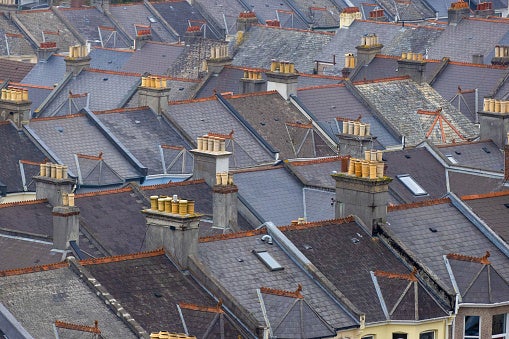Badly insulated homes costing poorer families £250 a year, councils warn
‘Investment now will save households further down the line,’ the LGA says

Poorer families already suffering the worst of the cost of living squeeze are having to pay an extra £250 a year on fuel due to inadequate home insulation, councils say.
Three million households in fuel poverty in England are being slapped with the extra cost as heat escapes through the walls, roofs and windows of poorly insulated housing, Local Government Association (LGA) analysis revealed.
The national membership body, made up of 350 councils in England and Wales, has issued calls for a strengthening of efforts to ensure all fuel-poor homes are propely insulated.
David Renard, environment spokesperson for the LGA, said: “So many homes are leaking more and more money as energy prices increase.
“This will hit stretched household budgets hard and the public purse, while adding to the climate crisis.”
According to the LGA analysis, however, a redoubling of efforts to insulate homes in fuel poverty would save millions from energy bills every year.
Mr Renard added: “Investment now will save households further down the line, ease the cost of living crisis and mean families have added security and flexibility within their budgets.”
Calls from the LGA have joined widespread demand for more action from the government on making homes more energy efficient.
By reducing demand for gas and other fuels, improving household fuel efficiency saves on bills, supports security of supplies and cuts carbon emissions.
The independent advisory Climate Change Committee earlier this week slammed “shocking” gap the government’s efforts to better insulate Britain’s homes.
It suggested that the government increase funding for energy efficiency in fuel-poor homes, and introduce policies to incentivise homeowners to improve their properties. The advisers also called for the government to work with councils to deliver retrofits.
It comes after it was revealed earlier this year that one in eight households - which the LGA equates to three million homes - were in fuel poverty in 2020, before Brits fell foul to spiralling gas prices.
Official statistics now consider households in England to be in fuel poverty if their home has an energy efficiency rating of band D or below and their disposable income after housing and fuel costs is below the poverty line.
The LGA report now suggests that two million households in fuel poverty will need additional help to implement energy efficiency measures to lift homes up to a rating of band C by 2030.
Set to meet for their annual conference in Harrogate this week, local authorities are saying that the additional help for these homes is needed to hit the government’s ambition to retrofit 3.1 million fuel poor homes to an energy rating of C by 2030 - almost 900 homes a day this decade.
The LGA said better focus on fuel poor properties would save up to £770 million a year from household energy bills by 2030.
The organisation also claims it could save £500 million a year on NHS spending on health problems due to cold, damp and draughty homes, while also delivering 670,000 tonnes of carbon dioxide savings a year from 2030.
Mr Renard continued: “Ensuring homes are well insulated also means fewer people are at risk of the health risks associated with living in cold, damp conditions, and this is work we have to do as part of our drive to net zero.
“Councils are keen to help the government deliver on this win-win policy and increase the number of buildings insulated by winter.”
The LGA said that, despite the government package devised to ease the cost of living in the short term, more support was need.
Ministers should consider further investment in energy efficiency, it urged.
The LGA said councils were best placed to deliver programmes to help decarbonise England’s buildings, with local knowledge, experience, trust and partnerships and relationships with residents, and an energy efficiency scheme would create 23,000 skilled jobs across the country.
With additional reporting from the Press Association






Join our commenting forum
Join thought-provoking conversations, follow other Independent readers and see their replies
Comments